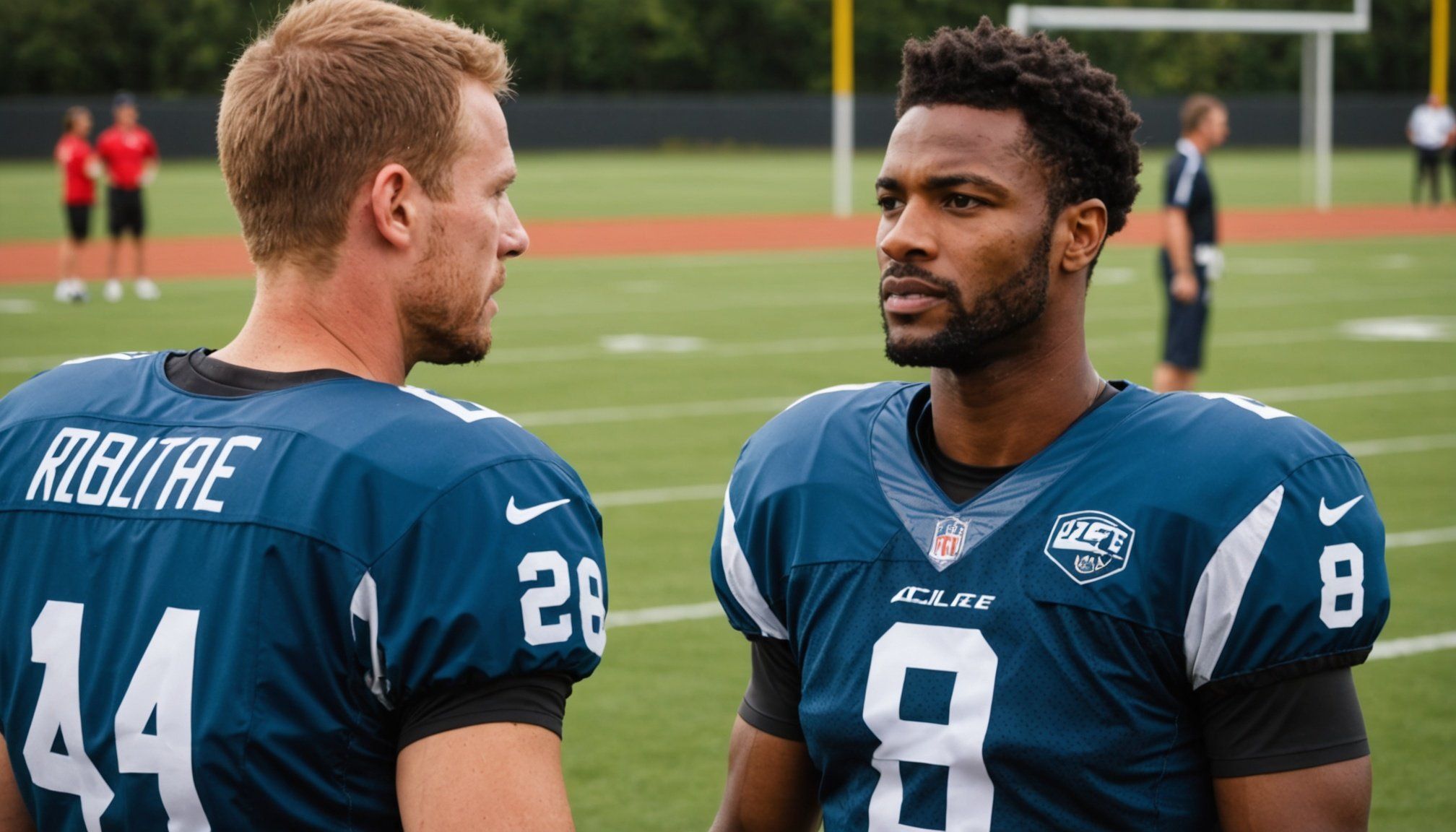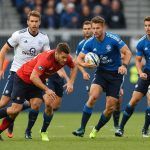Overview of Athlete Mentalities
Athlete mentalities play a critical role in achieving optimal sports performance. These mentalities encompass the psychological strategies athletes employ to enhance their focus, resilience, and overall effectiveness in both competitive and recreational settings.
Athlete mentalities differ notably between solo and team sports. In solo sports, athletes must often rely on their own skills and mental toughness to succeed, emphasizing the importance of personal motivation and accountability. For instance, in marathon running, athletes need to foster a strong mental discipline to push through physical exhaustion without team support.
Also to discover : Supercharge Your Cycling Skills: Top Off-Season Training Strategies for Competitive Riders
Conversely, team sports focus on a collective mindset, where success depends on group dynamics and communication. In sports like football, achieving harmony among team members is essential for seamless performance. Differences in athlete mentalities between solo and team sports highlight the significance of adapting psychological strategies according to the sport’s structure.
Ultimately, an athlete’s mentality greatly influences their sports performance. A well-developed psychological strategy can help athletes manage challenges, harness their strengths, and maintain resilience under pressure. Focusing on mental training as much as physical preparation ensures a comprehensive approach to achieving success in any sport.
In the same genre : Boosting Workplace Synergy: Harnessing Sports Psychology to Elevate Team Collaboration
Psychological Strategies in Solo Sports
Solo sports demand an exceptional level of mental resilience from athletes. Competing individually, these athletes often employ psychological strategies to enhance their focus and maintain performance under pressure.
Mental Toughness in Individual Athletes
Building mental toughness is crucial for success in solo sports. This involves developing the ability to perform consistently, even when faced with challenging conditions. Athletes train their minds to stay strong and focused, using self-affirmation and positive visualization as tools.
Focus and Concentration Techniques
Solo athletes refine focus and concentration through specific mental exercises. Techniques such as mindfulness and controlled breathing help maintain a clear focus, particularly in high-stress situations. These strategies are pivotal for not only sustaining performance but also for minimising errors.
Coping Mechanisms for Loneliness and Isolation
To counter feelings of loneliness, athletes develop coping mechanisms. Self-discipline and accountability are key aspects, allowing athletes to push through solo training routines. They might also seek external encouragement from coaches or peers to stay motivated. Embracing solitude allows athletes to better understand their limits and cultivate independence, directly contributing to their overall sports performance.
Psychological Strategies in Team Sports
Team sports require a collective mindset and an understanding of group dynamics to achieve success. Athletes in these settings must navigate the complexities of working together effectively.
Role of Communication in Team Cohesion
Communication is vital for team sports success, facilitating clarity in shared goals and objectives. From discussing strategy to offering motivation, effective communication fosters stronger team cohesion. This cohesive communication aids in synchronising movements and decision-making, crucial for optimal team performance.
Developing Trust and Teamwork
Trust among team members is pivotal. It enables athletes to depend on one another, building a foundation for effective teamwork. Trust is cultivated through shared experiences, with a mutual understanding of each player’s strengths. It strengthens group dynamics, enhancing overall performance.
Managing Group Pressure and Expectations
Performing under pressure is a key challenge in team sports. Athletes must manage expectations from coaches, peers, and themselves. Effective pressure management relies on established trust and shared roles, helping to harness anxiety constructively. Understanding how leadership styles impact team dynamics informs strategies for reducing stress while promoting resilience. By balancing these elements, athletes can focus on not only their individual roles but also their contribution to the team’s success.
Comparative Analysis of Solo vs. Team Sports
Examining the differences in psychological preparation between solo and team sports offers valuable insights. In solo disciplines, athletes often refine personal mental resilience, developing robust self-discipline and accountability measures. Athletes engage in individual competition, prioritising their internal focus and personal goals, leading to self-motivated strategies for overcoming challenges and enhancing performance.
Conversely, team sports demand a collective mindset. Group interactions play a significant role, as athletes align their mentalities with shared objectives. The social dynamics foster trust, collaboration, and mutual support, essential for team cohesion. These aspects uniquely influence how athletes manage pressure and expectations within group settings.
Social interactions also impact competition motivation. Solo athletes may rely on self-driven motivations like personal bests, while team athletes harness peer encouragement and support to strive for victory. The style of competition further shapes mental approaches. Solo sports often require heightened introspection and self-evaluation, enhancing individual growth. Team sports, however, focus on communication, conflict resolution, and adaptive strategies, led by impactful leadership styles.
Ultimately, understanding these psychological contrasts enables athletes to harness appropriate mental strategies, improving overall athlete performance according to their sport’s demands.
Expert Opinions and Case Studies
Exploring expert analysis and athlete case studies offers a deep dive into the elements of psychological performance that define sports success. Interviews with sports psychologists provide valuable insights into cultivating mental toughness, demonstrating how psychological resilience is crafted through consistent practice and tailored mental strategies.
Interviews with Sports Psychologists
Sports psychologists offer critical perspectives on mental preparation, emphasizing the importance of tailored psychological strategies. They advocate for personalized approaches in training programs, highlighting techniques that bolster an athlete’s mental resilience. Their expertise underscores the necessity of integrating psychological training alongside physical skill development for comprehensive sports performance improvement.
Analysis of Notable Athletes in Both Contexts
Examining athletes who excel in both solo and team sports provides illuminating lessons on athlete mentalities. Notable examples reveal how elite athletes adapt their psychological approaches to align with their specific sport’s demands, showcasing the versatility of mental disciplines. These athletes’ success often hinges on their ability to seamlessly transition between personal and collective mental frameworks.
Case Studies Highlighting Mental Strategies
Case studies bring to light real-world applications of mental strategies in various sports contexts. From navigating failure to capitalizing on strength, these examples illustrate how athletes leverage their psychological acumen to overcome challenges, transform adversity, and sustain high-level performance across competitive arenas.
Practical Applications for Coaches and Athletes
The realm of coaching strategies offers ample opportunities for developing mental resilience among athletes. Coaches play a pivotal role by integrating customized mental preparation plans tailored to each athlete’s specific sport type.
Techniques that foster mental resilience are crucial. Coaches should encourage athletes to incorporate mindfulness practices into their routines, enhancing focus and concentration. Regular reflection sessions can aid in evaluating mental progress and identifying areas needing improvement.
Athlete training programs should blend traditional physical drills with exercises aimed at building psychological strength. Performance enhancement is achieved when athletes tap into a dual enhancement approach, optimizing both body and mind for peak performance.
Athletes can adopt strategies from both solo and team disciplines. For example, cultivating a personal mantra can mirror the self-discipline necessary in solo sports, while participation in team-building activities enriches the understanding of group dynamics.
Developing customized mental preparation plans ensures that athletes are not only physically but also mentally prepared, accentuating their strengths relative to their chosen sport. Tailoring these approaches aids athletes in maximizing their competitive edge, building towards comprehensive performance improvement.











